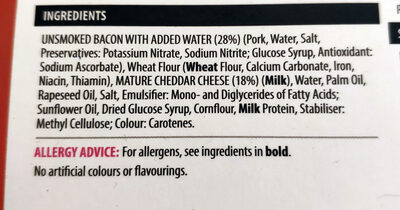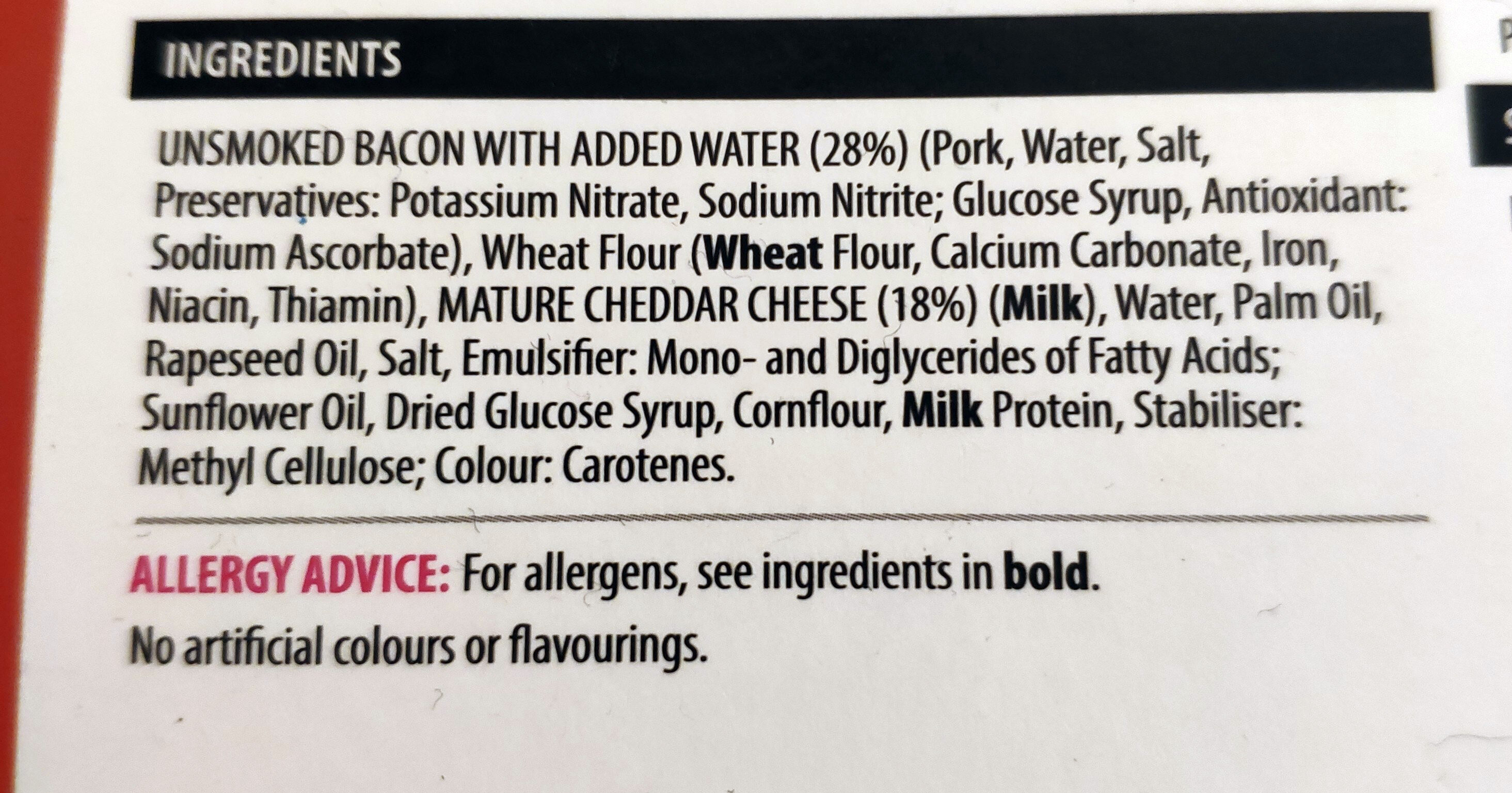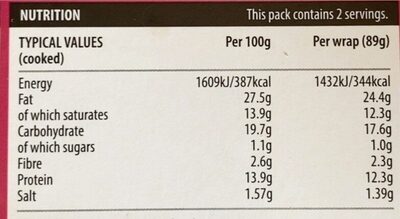Bacon & cheese wraps - Crestwood - 194g
This product page is not complete. You can help to complete it by editing it and adding more data from the photos we have, or by taking more photos using the app for Android or iPhone/iPad. Thank you!
×
Barcode: 4088600315089 (EAN / EAN-13)
Common name: Unsmoked bacon with added water and mature cheddar cheese wrapped in flaky puff pastry
Quantity: 194g
Brands: Crestwood
Categories: Meals, Puff pastry meals
Labels, certifications, awards: No artificial flavors, No artificial colors, No artificial colours or flavours
Stores: Aldi
Countries where sold: United Kingdom
Matching with your preferences
Report a problem
Data sources
Product added on by kiliweb
Last edit of product page on by kiliweb.
Product page also edited by alia, openfoodfacts-contributors, yuka.sY2b0xO6T85zoF3NwEKvllRIfd3yoCr0GT76knSV2P6rM43VUfBgwqPAH6s, yuka.sY2b0xO6T85zoF3NwEKvln1AV_H3pSDhEhjthGaHme2zFqfJTtov-7ekb6o.












